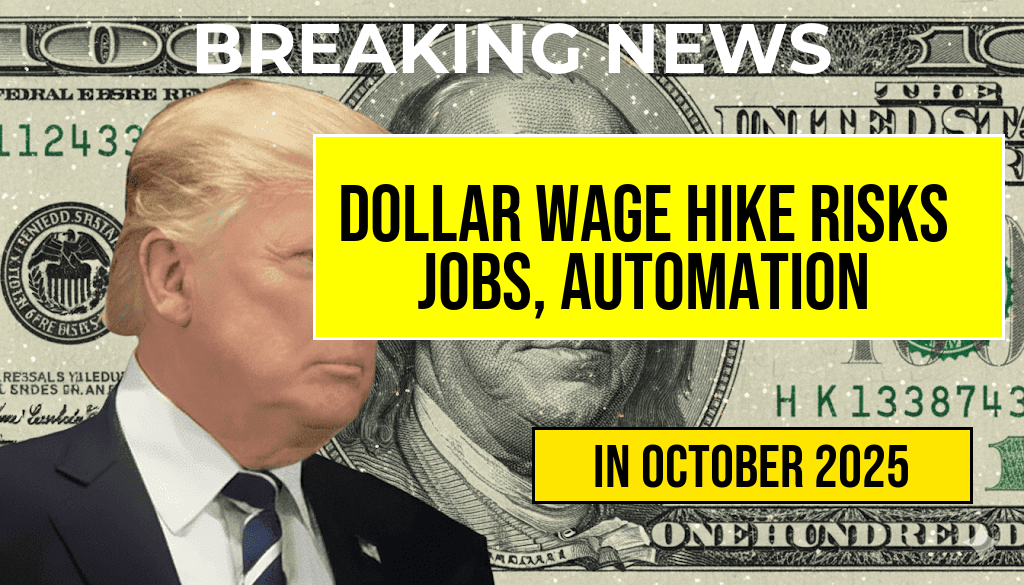The recent push to raise the minimum wage by one dollar nationwide has sparked a vigorous debate among small business owners, economists, and labor advocates about its potential impact on employment levels and the broader economy. While advocates argue that modest wage increases can boost worker morale and reduce turnover, critics warn that even a small hike might compel some small businesses to reduce staff or delay expansion plans, especially as automation and technological solutions become more accessible and affordable. This dynamic raises questions about the delicate balance between fair wages and sustainable business operations in an era of rapid technological change.
Potential Impacts of a One-Dollar Wage Increase on Small Businesses
Cost Pressure and Employment Decisions
Small business owners often operate on tight margins, making even slight increases in labor costs consequential. A one-dollar raise, while seemingly modest, can add up significantly when multiplied across multiple employees or hours worked. For some, especially those in retail, hospitality, or service sectors, this additional expense could lead to tough choices, including trimming staff hours, postponing hiring, or even laying off workers. According to a 2022 study by the National Federation of Independent Business (NFIB), nearly 30% of small employers express concern that wage hikes could hinder their ability to maintain current staffing levels.
Automation as a Response to Rising Labor Costs
Meanwhile, the increasing affordability of automation technologies presents an alternative to manual labor for many small businesses. From self-service kiosks in restaurants to automated checkout systems in retail stores, technology is gradually reducing reliance on human staff. Industry analysts suggest that even minor wage increases could accelerate investments in such solutions, potentially leading to job reductions in sectors where automation can replace routine tasks. A report by Wikipedia highlights how technological advancements have historically reshaped labor markets, often favoring capital over labor in the long term.
Economic Perspectives and Policy Debates
Support for Fair Wages
Proponents of the wage increase emphasize the importance of ensuring that workers can meet basic living expenses. Advocates argue that a dollar increase helps lift low-income workers closer to a living wage, potentially reducing reliance on public assistance programs. Economic research, such as a 2019 study published in the American Economic Journal, indicates that modest wage hikes are associated with increased worker productivity and morale, which can benefit small businesses in the long run.
Concerns About Inflation and Employment
Opponents caution that even a small rise in wages could contribute to inflationary pressures, which might ultimately harm the economy. Small businesses, they note, often lack the financial reserves to absorb increased costs without passing them on to consumers or reducing their workforce. The Federal Reserve has previously acknowledged that wage increases can influence inflation, especially if widespread across multiple sectors. The fear is that a ripple effect could prompt broader economic adjustments, including increased unemployment in vulnerable sectors.
Data and Trends Shaping the Discourse
| Wage Increase | Reported Small Business Response | Estimated Job Impact |
|---|---|---|
| +1 Dollar | Staff hour reductions, delayed hiring | Potential decrease of 0.5–1% in employment levels in affected sectors |
| +5 Dollars | More significant layoffs, automation investments | Possible 2–3% job reduction in high-automation sectors |
Data from recent surveys suggest that small businesses are closely monitoring wage policies, with many preparing contingency plans to adapt to potential cost increases. The National Restaurant Association reports that nearly 45% of restaurant owners are considering automation to offset higher labor costs, highlighting how technological adaptation is increasingly intertwined with wage policies.
Balancing Fair Wages and Business Sustainability
The debate over whether a one-dollar wage increase could precipitate job cuts reflects a broader tension in economic policy: ensuring fair compensation while preserving the vitality of small enterprises. Policymakers face the challenge of designing wage policies that promote economic equity without inadvertently destabilizing small business employment, especially as automation continues to reshape the labor landscape.
As discussions continue, small business owners, workers, and policymakers will need to navigate these complex dynamics carefully. While a modest wage increase aims to improve living standards, its implementation must consider the evolving technological environment and the capacity of small businesses to adapt without sacrificing employment opportunities.
Frequently Asked Questions
What are the potential impacts of a one-dollar wage increase on small businesses?
The wage increase could lead small businesses to face higher labor costs, which might pressure them to cut jobs or reduce employee hours to maintain profitability.
How might automation influence the decision of small businesses in response to wage hikes?
With rising wages, small businesses may consider investing in automation technologies to reduce labor costs, potentially leading to job cuts and changes in employment structures.
Could the wage increase lead to higher prices for consumers?
Yes, businesses may pass on the increased labor costs to consumers through higher prices, which could impact demand and overall market dynamics.
What strategies can small businesses adopt to mitigate the negative effects of wage increases?
Small businesses can explore productivity improvements, cost management, or training to enhance efficiency, helping to balance wage increases without resorting to job cuts.
Is there evidence that wage increases lead to significant job losses among small businesses?
Research findings are mixed, but some studies suggest that modest wage increases may be offset by increased employee productivity. However, substantial hikes could strain small business finances and potentially result in job reductions.








